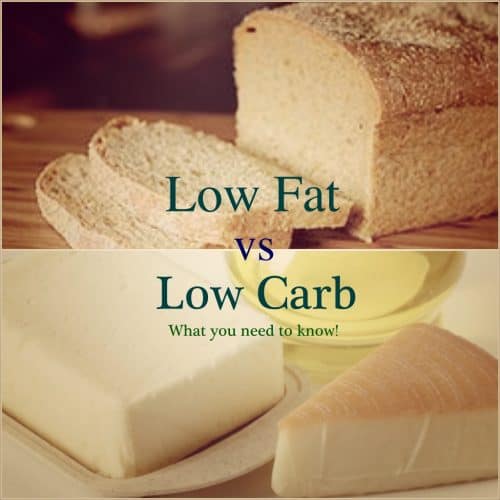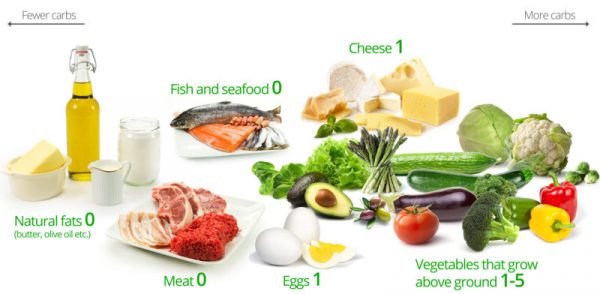Low-Fat or Low-Carb? The Verdict
Disclosure: We use affiliate links and may receive a small commission on purchases.
 Low-Fat or Low-Carb? The Verdict
thefitbay.com
Low-Fat or Low-Carb? The Verdict
thefitbay.com
Over the past three decades, hundreds of diets have been developed to help people lose weight. While some have seen real success, others have been discarded as either shams or scams. However, diets that are based on two core philosophies continue to enjoy both rave reviews and constant criticism. These include low-fat diets and low-carb diets.
For most of the last 50 years, it has been assumed that if people eat a low-fat diet, they will lose weight and improve their health. The increasing prevalence of cardiovascular disease also helped promote the benefits of a low-fat diet since the process of atherosclerosis primarily starts off with fat deposits in the blood vessels. Hence, the low-fat movement started and most large medical organizations began to recommend that the daily intake of fat should be limited to no more than 30 percent of a person’s total daily calories. However, with time and with continuing increases in both obesity and heart disease, it became apparent that simply cutting down fat was not leading to loss of weight or a reduction in heart disease. So, the question is – are low-fat diets really the answer?

The dogma that one can lose weight with a low-fat diet has been challenged by recent clinical studies. These new studies suggest that a more effective way of losing weight would be to follow a low-carb protocol.
Clinical Evidence
Several large studies have been conducted recently on the low-carb diet. These studies have included participants from different population segments with different types of medical disorders including obesity, hypertension, metabolic syndrome, diabetes etc. In most of these studies, the evidence reveals that a low-carb diet is much more effective at lowering body weight as compared to a low-fat diet. In addition, study findings also showed significant lowering of blood pressure, blood sugar levels and lipid levels in a large number of study participants.
Should We All Switch to Low-Carb?
There is no doubt that clinical evidence suggests that low-carb diets are quite effective in managing weight loss. However, looking back at these low-carb and low-fat diet studies, investigators have pointed out certain limitations in the research. They highlight that in most of these studies, the low-fat diet made up 30% of the total calorie intake. In their opinion, this level of fat cannot be classified as low-fat. A low-fat diet should ideally make up a maximum of 20% of the total calorie content.

The same seems to be true for low-carb diets. Many of the so called low-carb diets still made up at least 34% of the total calorie count – approximately 127 grams of carbohydrates. Carbohydrate intake of more than 100gm is technically not low-carb. In reality, a diet is said to be low-carb if it contains between 30-50 grams per day. Ketosis-based diets are based on the very principle of low-carb and they recommend limiting carb intake to a maximum of 50gms a day and lower for best results.
Further analysis also reveals that in many studies, there was no control on the type of carbohydrate consumed. An important thing to keep in mind is that all carbs are not equal. Some are worse than others. The carbs we accumulate from bread, grains, pasta, cereals, rice etc. are known to induce more severe inflammation compared to the carbs obtained from veggies, fruits and legumes. In addition, these studies had no control over foods with high or low glycemic index; It is well established that foods with a high glycemic index and low-fiber intake can increase ‘bad’ cholesterol and lower ‘good’ cholesterol. All these factors make it difficult to determine which type of low-carb diet works best.
The Verdict?
Overall, most of the studies comparing low-carb and low-fat diets have been poorly conducted, and one should not rely on them alone as evidence for good nutrition. However, it is abundantly clear that purely following a low-fat diet is definitely not the way to go. Low-carb diets on the other hand, if diligently practiced, do produce better results. As long as those on the diet manage to control their daily carb intake under 50gms, they will consistently lose weight. The same is not true for low-fat diets.

The only area of concern is that most people cannot sustain the low-carb intake forever. Eliminating grains, flour, rice, pasta and cereal may work well for the first six months or so but a time will come when your body will crave these items. That is why many of the low-carb diets such as the Ideal Protein Diet follow a phase by phase protocol where individuals can slowly add items from different food groups once they’ve achieved their goal weight. That means that if you’re in Phase 1, you have to restrict your intake to 50gms of carb a day but once you have achieved your goal weight, you can move on to Phase 2, Phase and 3 and Phase 4 subsequently. However, diets like Ideal Protein and Atkins require consumption of food items that are specific to these diets. This can be quite expensive and sometimes unaffordable for those who really need the help.
The Bottom Line
The reality is that following a low-carb, low-fat, keto, fasting diet etc. is not everybody’s cup of tea. Obesity is definitely a problem that should be dealt with and if one is obese and at risk of heart disease and diabetes, one should definitely follow a health plan that will reduce their weight and BMI. However, in the long-run, if you want to remain healthy and/or lose weight, the easiest solution is to eat a healthy diet that consists of a healthy balance of fruits, vegetables, nuts, unsaturated oils, cereals, whole grains, low-fat dairy, seafood and lean meats. Smoking should generally be avoided and alcohol consumption should be limited (if not eliminated completely). Finally, no matter which diet you select, if you want to lose weight, you must exercise. Whether it’s walking, jogging, swimming or lifting weights, physical activity is critical to our long-term health and longevity.










